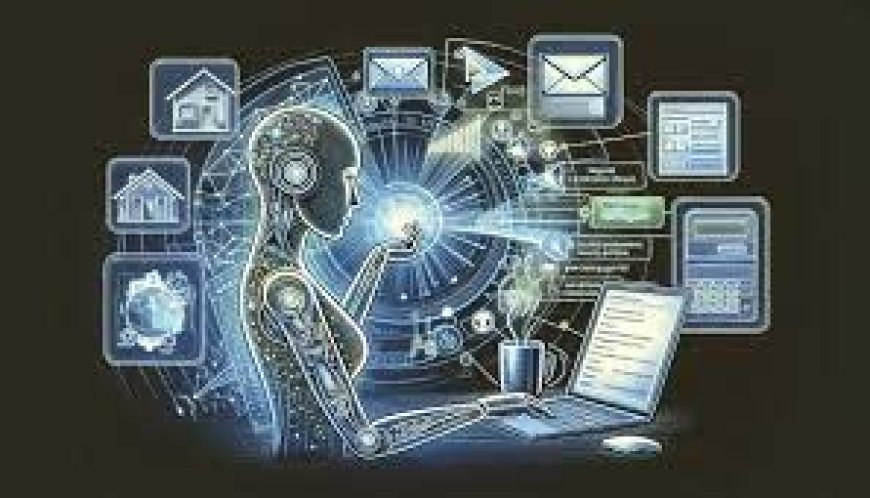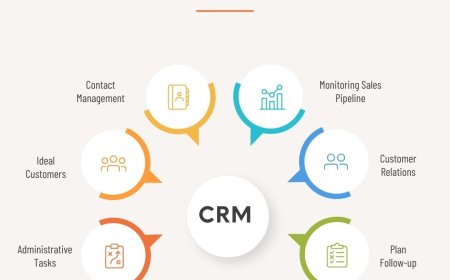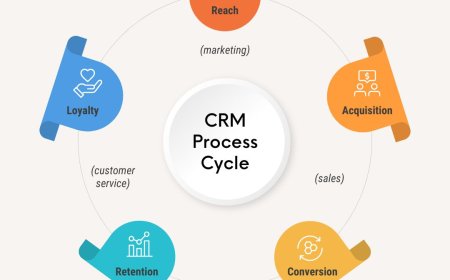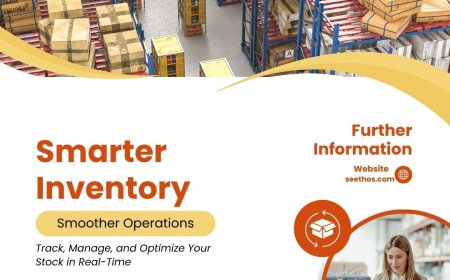How AI Agent Development Is Shaping the Future of Work
AI agent development is redefining how work gets done by automating tasks, enhancing decision-making, and enabling smarter human-machine collaboration.

The future of work is no longer a distant visionits unfolding before our eyes. At the heart of this transformation is AI agent development, a field that is rapidly reshaping how we interact with technology, perform tasks, and make decisions. These intelligent software agents are becoming integral to business operations, automating complex processes, supporting human workers, and redefining traditional job roles.
As organizations adapt to an increasingly digital and data-driven environment, AI agents are not just toolsthey are becoming collaborative partners. This blog explores how AI agent development is shaping the future of work, what it means for businesses and employees, and how to prepare for this new era.
What Are AI Agents?
AI agents are autonomous, intelligent software systems that can perceive their environment, analyze data, make decisions, and perform tasks to achieve specific goals. Powered by technologies like machine learning (ML), natural language processing (NLP), computer vision, and reinforcement learning, these agents can:
-
Interact with humans in natural language
-
Learn from feedback and improve over time
-
Operate independently across digital systems
-
Collaborate with other agents or humans
AI agents are now being used across customer service, finance, healthcare, logistics, HR, and morestreamlining operations and augmenting human capabilities.
Key Ways AI Agent Development Is Reshaping Work
1. Automating Repetitive and Cognitive Tasks
AI agents can handle repetitive, time-consuming, and even cognitive tasks with high accuracy and speed. Examples include:
-
Responding to customer inquiries
-
Processing invoices
-
Generating reports
-
Scheduling meetings
-
Analyzing large datasets
By automating these tasks, AI agents free up employees to focus on more strategic, creative, and interpersonal responsibilities.
2.Enabling Smarter Decision-Making
AI agents provide real-time insights and recommendations by analyzing vast volumes of structured and unstructured data. This empowers professionals in fields like sales, marketing, finance, and operations to:
-
Make informed decisions faster
-
Identify patterns and trends
-
Predict outcomes with greater accuracy
-
Reduce errors in judgment
For example, a sales agent might suggest the best leads to pursue, or a financial agent could flag risky transactions.
3.Enhancing Human-Machine Collaboration
The future of work is not about humans vs. machinesits about collaboration. AI agents act as intelligent copilots, supporting employees with:
-
Instant access to relevant information
-
Suggestions during decision-making
-
Automated follow-ups and reminders
-
Summarized insights from large data sets
Think of AI agents as digital teammates that enhance productivity, reduce workload, and improve outcomes across functions.
4.Supporting Remote and Hybrid Work Models
With more organizations adopting remote and hybrid work models, AI agents play a crucial role in maintaining efficiency and connectivity. They can:
-
Automate remote onboarding processes
-
Monitor and support employee engagement
-
Manage digital workflows across distributed teams
-
Provide 24/7 virtual assistance for staff and customers
These agents help create seamless, flexible work environments regardless of location.
5.Personalizing the Employee Experience
Just as AI is personalizing customer experiences, its now transforming the employee journey. AI agents can:
-
Tailor learning and development paths
-
Offer personalized wellness and productivity tips
-
Automate routine HR tasks like time-off requests or benefits management
-
Identify skill gaps and recommend upskilling opportunities
This personalization helps foster engagement, growth, and job satisfaction.
New Roles and Skills in an AI-Driven Workforce
As AI agents take over routine tasks, the nature of human work is evolving. New roles are emerging that focus on creativity, emotional intelligence, critical thinking, and AI oversight. These include:
-
AI Trainers: Fine-tune AI agent performance by feeding training data and refining outputs
-
Prompt Engineers: Design inputs and conversational flows for generative AI systems
-
AI Ethicists: Ensure AI agents are transparent, fair, and aligned with ethical standards
-
Human-AI Interaction Designers: Create seamless collaboration experiences between users and AI agents
-
Data Analysts & Strategists: Interpret the insights AI agents produce to drive decisions
Developing digital literacy and soft skills is key to thriving in this AI-integrated future.
Benefits of AI Agents for Businesses and Employees
? Increased Productivity:
Employees spend less time on repetitive tasks and more on high-value work.
? Faster Decision Cycles:
Data-driven insights help teams respond to challenges and opportunities more quickly.
? Scalability:
Businesses can scale operations without a proportional increase in headcount.
? Cost Efficiency:
Operational costs decrease as AI agents handle routine support and administrative functions.
? Improved Employee Experience:
Reduced stress, more meaningful work, and personalized development paths lead to greater engagement and retention.
Challenges and Considerations
Despite the advantages, organizations must address challenges such as:
-
Workforce Displacement: Employees may fear job lossrequiring careful change management and reskilling efforts.
-
Bias and Transparency: AI agents must be trained on diverse, representative data to ensure fairness.
-
Privacy and Security: Handling sensitive employee and customer data must comply with regulations and ethical standards.
-
Trust and Adoption: Gaining employee trust in AI systems is essential for successful integration.
To overcome these challenges, organizations need a strategic, inclusive approach to AI implementation.
Preparing for the Future of Work
1. Foster a Culture of Learning:
Encourage employees to upskill in areas like data analysis, digital collaboration, and AI literacy.
2. Involve Employees in AI Projects:
Include staff in the design, testing, and feedback loop of AI agents to build trust and relevance.
3. Focus on Ethical AI Practices:
Establish clear guidelines for responsible AI use and ensure transparency in how agents make decisions.
4. Invest in Scalable AI Platforms:
Use flexible, modular AI development platforms to build and deploy agents tailored to your business needs.
Conclusion
AI agent development is not just changing how we workits changing what work means. By automating the mundane, amplifying human strengths, and enabling new kinds of collaboration, AI agents are laying the foundation for a smarter, more dynamic, and more fulfilling workplace.
Organizations that embrace this shift today will be better positioned to lead in the economy of tomorrow. And workers who evolve with these technologies will find themselves empowered, not replacedplaying a vital role in shaping the future of work.










































